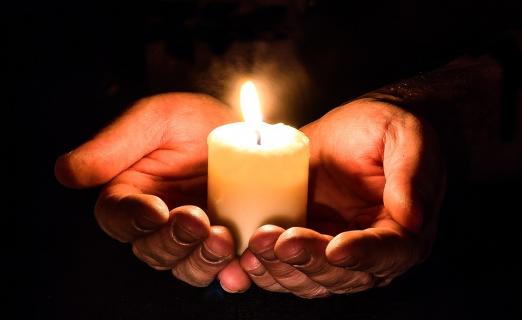
By Corie Rosen
A few weeks before the election, a novelist friend of mine started a book mail project, a sort of chain letter in which all the people she knows send books, anonymously, to each other. When I first signed up to participate, I decided I would send the stranger at the other end of the mail chain a copy of Jenny Offill’s gorgeous book Dept. of Speculation. But after November 8, I wanted to send something political, something that would speak to the uncertainty and anxiety not just of our age, but of almost all forms of government. I’ve decided to send a copy of J.M. Coetzee’s Disgrace.
Like so many people, my relationship with reading and writing is rooted in a complex personal identity. My family came to the United States to escape persecution. My great-grandparents fled the Russian pogroms, those campaigns of violence and destruction. My great-uncle, born in Germany, was one of only two people in his family to survive the Nazis. His entire family, everyone who stayed behind, died in the camps.

For a long time, I thought perhaps this heritage of political violence meant that I was not allowed to work as a writer, to spend time in a room by myself rearranging words in empty space. Writing itself does not shore up stores for the winter. It does not educate the young about the complex inner workings of effective democracies. In most cases, it does not yield valuables that can be, say, smuggled across a border and used as a down payment on a new life. To do work with no guaranteed outcome, in some ways, seemed selfish. Wasn’t there other, more essential work to do? And who was my writing ever going to help?
The election has forced me to grapple with these questions once again. It seemed the sun had not risen Wednesday morning before the hate crimes started. A gay man was beaten bloody outside a nightclub. Swastikas and slurs appeared and continue to appear on cars, on walls, on windows. At 4 AM the day after the fateful vote, still sleepless and stunned, I opened up Facebook. I was looking for the faces of friends, for silly memes and easy-to-digest pictures of babies, cats, and puppies. Anything my panicked brain could absorb and keep in focus. Small bites, I told myself. Stay positive.
I found all of the things I was looking for, but I also found something unexpected. Friends and friends of friends had been posting poetry and speeches, words from Maya Angelou and Dr. King and Allen Ginsburg and so many other people. As I read these words, I felt my heart rate slow, my breathing steady. And the more I read, the more I was able to calm down enough to think clearly. The words did not eliminate my fear or sadness, but they did make me feel consoled, as though I was not the first person to face uncertainty and rising violence, as though people had lived through the things that I fear are coming, as though I was not alone.
Now I think that perhaps this is what it means to be a writer and a reader. Maybe the impulse to write is actually simple. Maybe it is just the desire to reach beyond the boundaries of our experience, to say, “You are not alone. I too have been there.” To find words and rhythms that bring us closer to one another, even if we speak to one another as strangers.
I do not know if the copy of Disgrace I plan to send the unknown person on the other end of the book-mail chain will give that reader any solace. The story is not particularly uplifting, but it does suggest that there is some hope for individual redemption even in the worst political conditions, that in the aftermath of hate and violence, transcendence may still be available to those of us willing to seek it.
In the end, maybe that is what we are doing here at Lighthouse together, seeking a form of transcendence, a form of light. Not a looking away so much as a brightening of the way forward. Maybe every story, essay, or poem is really just a gleam along a path that would otherwise lie in darkness. Not questions and answers, but dazzling fires that dance.
I cannot control what will happen next. I do not know whether we will be forced to relive the Great Depression, or Hitler’s rule, whether for years to come, we will fear ever more for our lives and safety. What I do know is that I have books and poems, my own writing and the writing of others, and that these are the small flames with which I can sit as I might sit in meditation, that these flames will illuminate my path regardless of what happens. I am grateful be a member of this writing community precisely because it means I have a place to go to share and receive the light of so many glimmers, hands to take them from and pass them to and a community of people reaching endlessly forward, ready to grasp those candles’ waxy stems and hold them up to spread the light.
This post is part of our annual Lit Counts series, in which writers and readers express why supporting and elevating literary arts—the mission of Lighthouse Writers Workshop—is important to them. If you agree, consider supporting Lighthouse on Colorado Gives Day. Mark your calendar for December 6 or schedule your gift now. Thank you!
Corie Rosen's short stories, nonfiction, and poetry have appeared in various journals and anthologies and have also been featured on NPR. She recently completed the Book Project and is at work on a draft of a novel.

